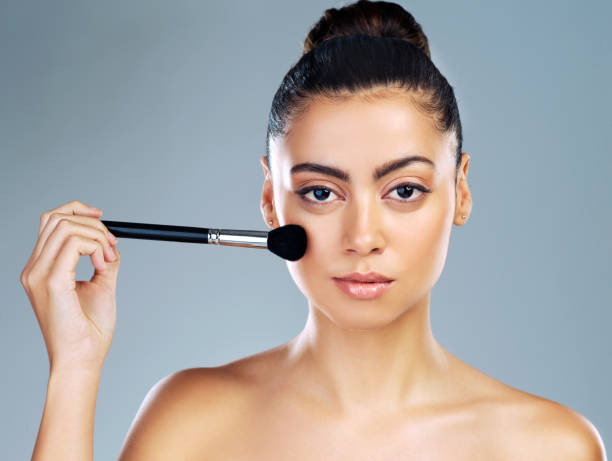Keeping your makeup brushes clean is crucial for maintaining healthy skin and ensuring a flawless application. In this article, we’ll explore the step-by-step process of how to clean your makeup brushes like a professional. By following these simple yet effective techniques, you’ll be able to extend the lifespan of your brushes and keep your makeup looking fresh and beautiful.
Why Cleaning Makeup Brushes is Important

Regularly cleaning your makeup brushes is essential for several reasons. First, dirty brushes can harbor bacteria, which can lead to skin irritations, breakouts, and infections. Second, buildup of makeup residue can cause brushes to become less effective, impacting the quality of your makeup application. Lastly, proper maintenance can extend the life of your brushes, saving you money in the long run. By dedicating a little time each week to clean your brushes, you can ensure a healthier complexion and better makeup results.
What You Need to Clean Your Brushes
Before you start the cleaning process, gather the necessary supplies. Here’s a list of what you’ll need:
- Mild shampoo or brush cleanser
- Warm water
- A shallow bowl
- A clean towel
- Brush cleaning mat or silicone glove (optional for deep cleaning)
Having these items ready will make the cleaning process more efficient and effective. Investing in a quality brush cleanser or mat can also help achieve a deeper clean and maintain the condition of your brushes.
Step-by-Step Guide to Cleaning Your Brushes
1. Rinse the Brushes
Start by rinsing your brushes under warm running water. Be sure to only wet the bristles and avoid the ferrule (the metal part connecting the bristles to the handle), as water can weaken the glue holding the bristles together. Gently swirl the brushes to remove surface makeup residue.
2. Cleanse With Shampoo
Next, fill a shallow bowl with warm water and add a few drops of mild shampoo or brush cleanser. Swirl each brush in the mixture, gently massaging the bristles with your fingers or a brush cleaning mat to remove any embedded makeup and dirt. Continue this process until the water runs clear.
3. Rinse Thoroughly
Once you’ve thoroughly cleansed the brushes, rinse them under warm running water again to remove any remaining soap residue. Hold the brushes with the bristles facing down to prevent water from seeping into the ferrule. Continue rinsing until the water runs clear and no suds remain.
4. Remove Excess Water
After rinsing, gently squeeze the bristles to remove excess water. Be careful not to pull or tug on the bristles, as this can cause them to shed. Shake the brushes lightly, then blot them on a clean towel to absorb additional moisture. It’s important to handle the brushes gently to maintain their shape and integrity.
5. Dry and Reshape
Lay the brushes flat on a towel with the bristles hanging over the edge of a counter to air dry. This allows the bristles to retain their shape and prevents water from seeping into the ferrule. Let the brushes dry completely, which can take several hours or overnight, before using them again. Ensure they are fully dry to avoid any potential mold growth.
Conclusion
Cleaning your makeup brushes like a pro doesn’t have to be a daunting task. By following these steps and using the appropriate tools, you can maintain the hygiene and performance of your brushes. Regular cleaning not only protects your skin from potential harm but also ensures a flawless makeup application every time. Make brush cleaning a part of your beauty routine and enjoy healthier skin and stunning makeup results.
FAQs
1. How often should I clean my makeup brushes?
You should aim to clean your makeup brushes at least once a week to prevent buildup of bacteria and makeup residue.
2. Can I use regular shampoo to clean my brushes?
Yes, mild regular shampoo can be used to clean your brushes, but it’s recommended to use a brush cleanser for a deeper clean.
3. Is it safe to dry brushes using a hairdryer?
No, using a hairdryer can damage the bristles. It’s best to let the brushes air dry naturally to maintain their shape and integrity.
4. What happens if I don’t clean my brushes regularly?
Dirty brushes can harbor bacteria, causing skin irritations and breakouts. They also become less effective in applying makeup smoothly.
5. Can I clean my brushes with rubbing alcohol?
Rubbing alcohol can be used for quick disinfecting, but it’s too harsh for regular cleaning. Use it sparingly and opt for a mild cleanser for routine cleanings.